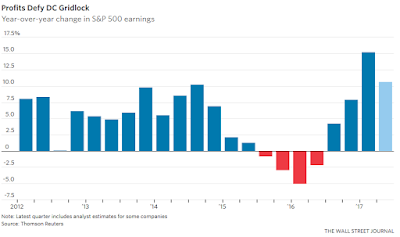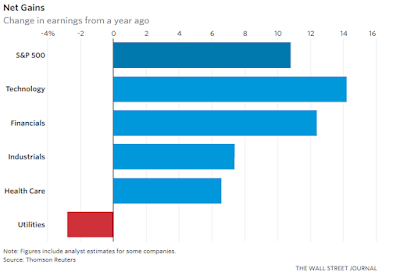
Before Redistricting

After Redistrictingfrom the
Baltimore Sun
Attorney General Brian E. Frosh asked a federal court Friday to dismiss a lawsuit that claims state lawmakers violated Republicans' constitutional rights when they redrew Maryland's congressional boundaries six years ago.
The state's response in the redistricting case — the first since the litigation forced several state Democrats to explain under oath the motivation behind Maryland's contorted congressional districts — asserts the plaintiffs have offered no evidence voters were targeted simply because they are registered Republicans.
Brought by a group of GOP voters in the 6th Congressional District, the case is one of several pending in federal courts that rely on new legal arguments to challenge the constitutionality of political gerrymandering. The Supreme Court recently agreed to hear one of those lawsuits this fall — and that litigation, which comes out of Wisconsin, could play into the Maryland suit.
The Maryland lawsuit, filed in 2013, is focused on how the redrawn 6th District in Western Maryland led to the election of a Democratic congressman for the first time there in more than two decades. The plaintiffs contend the map violated the First Amendment by retaliating against people who voted Republican.
Frosh, a Democrat, countered Friday that there is no evidence the General Assembly targeted individual Republicans for retribution. He also noted that a voter isn't entitled to be represented in Congress by someone of like mind.
"All of plaintiffs' arguments hinge on a single false premise: That individuals who affiliate with a party have a right to maintain electoral successes gained by their party under prior redistricting maps," Frosh wrote. "Plaintiffs have produced no evidence that any decision maker 'specifically intended to burden the representational rights of certain citizens.'"
An attorney for the voters declined to comment.
Dirk Haire, chairman of the Maryland Republican Party, dismissed the idea that the redistricting didn't hurt the GOP. The state party is not involved in the lawsuit.
"That's a total joke," Haire said. "Everyone in the state knows that the entire purpose behind the redistricting was to harm Republicans."
Gerrymandering, the practice of drawing boundaries for political advantage, often results in bizarre-shaped districts. Some studies have found that Maryland has one of the most gerrymandered congressional maps in the nation.
While politicians have long drawn districts for political advantage, computers have made the process an exact science. Carefully drawn maps can all but assure the party in power will retain its grip on the state legislature and congressional delegation for years.
No matter how the lawsuit turns out, it has refocused attention on the state's districts at a time when the issue is once again at the fore. Gov. Larry Hogan, a Republican, has advocated for a nonpartisan redistricting commission, ostensibly to curb partisan gerrymandering. Such a commission would likely result in Maryland sending more Republican lawmakers to Congress.
Under the current system, maps are drawn by the governor and approved by the General Assembly.
Democrats in Maryland have a two-to-one advantage in voter registration, but they control seven of the state's eight House seats.
In 2011, after adding heavily Democratic portions of Montgomery County to the Western Maryland-based 6th District, Democratic Rep. John Delaney ousted incumbent Republican Rep. Roscoe G. Bartlett. Delaney barely won reelection in 2014 — a point Frosh noted to underscore the competitiveness of the district.
But Delaney won with a 16-point margin in 2016, a presidential election year, and growth in the district suggests it will become more Democratic over time.
Lawyers deposed former Gov. Martin O'Malley, Senate President Thomas V. Mike Miller and House Speaker Michael E. Busch as part of the lawsuit this year. In transcripts of those interviews, made public this month, O'Malley acknowledged that part of his goal was to make the 6th District more friendly to Democratic candidates.
Though that was not a surprise — O'Malley was the leader of the state Democratic Party at the time, as well as governor — it was the first time an elected official involved in the process acknowledged what was widely believed. Miller and Busch both continued to say partisan politics had nothing to do with the redistricting.
In his motion, Frosh wrote that an effort to draw a better map for Democrats did not represent a violation of the Constitution.
"The only evidence produced proves merely that the mapdrawers intended to create a more competitive district, one that slightly advantaged Democrats without considering any particular citizen's political conduct," he wrote.
The Supreme Court has often lamented partisan mapmaking, but the justices have failed to agree on a legal standard to decide when an effort to draw political advantage into a district crosses the line. The Wisconsin and Maryland cases are proposing different standards for how to determine whether a map is unconstitutional.
The Maryland case is being heard by a three judge panel. The court set a hearing in the case for July 14, and the judges asked both sides to prepare to argue whether the litigation should be put on hold until the Supreme Court rules in the Wisconsin case.
Every noon-time NPR talk show at the time was about how the redistricting would help Democrats win elections. It was ALL about giving the DNC one more Congressional seat by moving Republicans to heavily Democratic districts (Like the 7th & 8th) and transferring urban Democrats into the rural Republican 6th to create a "slim" but electable majority. That Frosh claims there's no "evidence" of political bias in the redistricting is LAUGHABLE. The defacto result was to flip political representation from a 10-term incumbent Republican (Bartlett) to a Democrat (Delaney)
from
Wikipedia:
After redistricting, Delaney decided to run for the newly redrawn 6th District against 10-term Republican incumbent Roscoe Bartlett. The district had long been a Republican stronghold, but it had been significantly reconfigured. The Maryland General Assembly shifted heavily Republican Carroll County and a mostly Republican section of Frederick County to the heavily Democratic 8th district. It shifted Republican-tilting sections of Harford and Baltimore counties into the already heavily Republican 1st district. Taking their place was a heavily Democratic section of Montgomery County. The shifts were quite controversial, as Republicans accused Democrats of shifting district boundaries in their favor, while Democrats, led by Governor Martin O'Malley, insist the redrawn districts are fair and accurate representations of the state's population trends. During the primary, Delaney was endorsed by former President Bill Clinton, U.S. Congresswoman Donna Edwards, Comptroller Peter Franchot, the Washington Post, and the Gazette. On April 3, 2012, Delaney won the five-candidate Democratic primary field with 54% of the vote. The next closest opponent, State Senator Robert J. Garagiola, received 29% of the vote, 25 points behind Delaney. In the November 6, 2012 general election, Delaney defeated Bartlett by 59%-38%, a 21-point margin. He won mostly on the strength of a nearly 56,000-vote margin in Montgomery County, which accounted for almost all of the overall margin of 58,900 votes.
I wonder if Frosh would also argue that "no Democrats would be harmed" if we undid all the Democrat gerrymandering performed in 2012...and THEY subsequently lost a few seats in the U.S. Congress?
.

















